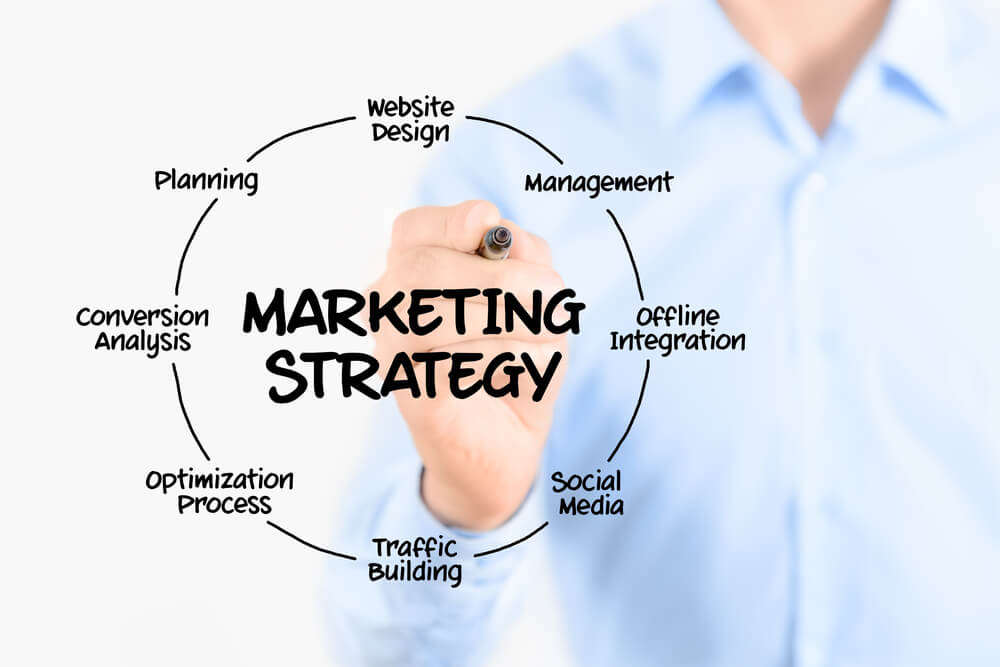
What are the Different Types of Marketing?
On September 18, 2021 by Morthe StandardMarketing refers to an organisation’s actions to reach the target audience and promote its brand through various activities. There are various types of marketing such as digital marketing, field marketing, e-mail marketing and many more. Marketing is a process through which an organisation communicates with the audience and lets the people identify what products and services they offer and how they are unique from other organisations. The main goal behind marketing is to build brand loyalty, gain recognition in the market, add value to the product, and ultimately increase sales. Marketing may sound simple, but it is a complicated process. It demands a lot of knowledge and experience. To make it simple, an organisation can reach out to a digital marketing agency, field marketing agency or any other agency that offers similar services. Following are a few most common types of marketing: –
Table of Contents
Traditional Marketing
Traditional marketing is the process of promoting a brand through offline channels. Traditional marketing was pretty famous before people started using the internet. Traditional marketing includes television advertisements, radio spots, flyers, billboards and many more.
Since data was not as effectively open and promptly accessible, most traditional marketing depends on outbound strategies like television advertisements, bulletin boards, print advertisements, and a few more.
Field Marketing
Field advertising, also known as field selling, is a conventional type of promotion that includes directly promoting the services or products to their intended target groups. Organisations can perform this by dispersing the sample products to the target audience.
There is no correct method to do advertising — as long as it interfaces with the ideal crowd and gives a profit from the venture. Most organisations utilise a blend of these techniques to create leads and obtain new clients. Field marketing requires a lot of knowledge and experience; it is an ideal option for a firm to reach out to a field marketing agency when it is about field marketing. Eventually, organisations need to pick what turns out best for their customers.

Digital Marketing
Digital marketing is something contrary to traditional marketing. Over here, technology is utilised to reach out to the target clients. This is the latest and one of the most developed marketing methods. When compared to traditional marketing, this is an economical approach. Organisations do not need to spend tons of cash to reach out to their target customers.
Organisations influence digital channels, for example, emails, web crawlers, social media, and sites, to associate with current and forthcoming clients.
Email Marketing
Email marketing or advertising associates organisations to prospects, leads, and customers, utilising email. They run email campaigns that are utilised to promote their services or products, guide clients towards a purchase, increase brand awareness, generate traffic to different channels, and build some brand loyalty.
Considering that the main thing an organisation will have to do is plan how they will assemble their email list, it is the target audience that they can send messages to get some leads. The well-known technique to gather the email list is to put online forms on the websites and other social media platforms.
Then, at that point, an organisation will need email advertising software and a CRM. It is used to send, track, and screen the viability of the messages.
Influencer Marketing
Influencer marketing is intended to take advantage of a current local area of connected devotees via web-based media. Influencers are viewed as specialists in their specialities (field or niche) and have assembled trust and loyalty from many people that an organisation may be attempting to reach.
To begin with influencer marketing, an organisation should initially develop a marketing strategy and then characterise what kind of influence would be suitable for reaching their target audience. Then, at that point, they will need to make a set of rules for the influencer to guarantee they line up with their marketing plan and spending plan. Components to consider incorporate their current metrics, the number of people they can reach, and their niche.
You may also like
Recent Posts
 Unleashing AI Power for Small Business Marketing Success
Unleashing AI Power for Small Business Marketing Success Pourquoi Choisir Une Structure En Acier Pour Vos Projets En Afrique ?
Pourquoi Choisir Une Structure En Acier Pour Vos Projets En Afrique ? Top IPTV France Providers: Finding the Best Service for You
Top IPTV France Providers: Finding the Best Service for You The Importance of Innovation Management in Business Success
The Importance of Innovation Management in Business Success How to Measure Lab Diamond Ring Size
How to Measure Lab Diamond Ring Size Web hosting plan: pro and cons of shared hosting and VPS hosting
Web hosting plan: pro and cons of shared hosting and VPS hosting White Sapphire vs. Diamond: The Ultimate Comparison
White Sapphire vs. Diamond: The Ultimate Comparison How Pawnbroking Works: A Step-by-Step Guide to Pawn Loans
How Pawnbroking Works: A Step-by-Step Guide to Pawn Loans GH Express LLC: Your Strategic Partner for Business Success in the U.S.
GH Express LLC: Your Strategic Partner for Business Success in the U.S.Novita Diamonds Shines a Light on Women’s Empowerment with Dress for Success Partnership
Buying Ethereum Down Under: Your Guide to Purchasing ETH in Australia
 Exploring the Brilliance of Lab-Grown Diamonds: Understanding the 4Cs
Exploring the Brilliance of Lab-Grown Diamonds: Understanding the 4Cs Lab Diamonds: The Top Choice for Ethical, Affordable, and Sustainable Brilliance
Lab Diamonds: The Top Choice for Ethical, Affordable, and Sustainable Brilliance SEO Backlink Services and Template Customization by a Pennsylvania SEO Expert
SEO Backlink Services and Template Customization by a Pennsylvania SEO Expert The Sparkle of Sustainability: Lab Grown Diamonds Adelaide
The Sparkle of Sustainability: Lab Grown Diamonds Adelaide
Popular Posts
 Leveraging User Forums and Communities: Online iPhone Selling
Leveraging User Forums and Communities: Online iPhone Selling Why You Should Be Adding Content to Google My Business
Why You Should Be Adding Content to Google My Business 360-Degree Digital Marketing Services: What’s included?
360-Degree Digital Marketing Services: What’s included? What are the Different Types of Marketing?
What are the Different Types of Marketing? 5 Tips for Sharing Files and Information Online
5 Tips for Sharing Files and Information Online 6 Major Factors To Consider Before You Hire Marketing Agencies Auckland
6 Major Factors To Consider Before You Hire Marketing Agencies Auckland First-Time Buyer’s Guide to Industrial Sewing Machines
First-Time Buyer’s Guide to Industrial Sewing Machines Benefits of Hiring a Full Time SEO Specialist
Benefits of Hiring a Full Time SEO Specialist Tips For Effective And Appealing Web Design
Tips For Effective And Appealing Web Design 3 Biggest Strategies That Can Help You Scale Up Your Company
3 Biggest Strategies That Can Help You Scale Up Your Company Using An SEO Consultant To Amp Up Your SEO Strategy During COVID-19
Using An SEO Consultant To Amp Up Your SEO Strategy During COVID-19- What Is The Essence Of Enterprise Resource Management Systems
How To Make Your Air Conditioning Business Ready For Google?
 Why Should You Add Comments To Your Blog?
Why Should You Add Comments To Your Blog?) 3 Reasons Why Forecasting Sales Is Important For Businesses
3 Reasons Why Forecasting Sales Is Important For Businesses
Most Viewed Posts
 API Integration Best Practices: Ensuring Secure and Scalable Solutions
API Integration Best Practices: Ensuring Secure and Scalable Solutions On The Whole Learning Elaborating Open Source API Tools
On The Whole Learning Elaborating Open Source API Tools Eliminate Annoyance By Fixing These Google Drive Problems
Eliminate Annoyance By Fixing These Google Drive Problems Reasons To Kick-Start Node JS Centric Product Development With Full-Swing
Reasons To Kick-Start Node JS Centric Product Development With Full-Swing Reasons Why It Is Important to Select the Best Online Education Platform for a Programming Assignment
Reasons Why It Is Important to Select the Best Online Education Platform for a Programming Assignment 6 Benefits of Using a Good Website Builder
6 Benefits of Using a Good Website Builder Techinques To Take Services For App Developers
Techinques To Take Services For App Developers- Four compelling reasons why the cloud makes it easy is the ideal IoT application
 A Guide To Hiring The Best Web Development Company
A Guide To Hiring The Best Web Development CompanyThe Best Tools For Mobile-First Indexing Strategy Development
